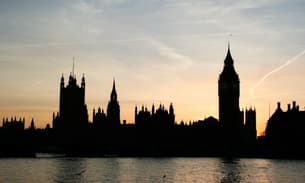
How the Budget will affect public sector pay and the perks
The Chancellor’s two-year public sector pay freeze will shave £6.6bn off the £174 billion public pay bill. Undoubtedly there are more cuts to come. But is a freeze the fairest and most effective way to raise funds from the public sector?
In June’s emergency Budget Chancellor George Osbourne announced a two-year pay freeze for all public sector workers but protected the 1.7 million public employes who earn less than £21,000.
Those earning below this threshold are to receive, instead, an annual pay rise of £250 for the next two years. According to the Treasury this pay freeze will save £3.3 billion a year.
However, due to long-term pay deals across some sectors the freeze will not be implemented until September 2011.
This sweeping gesture of an overall pay freeze, teamed with the rise in VAT in January, will hit those earning barely above minimum wage proportionally far harder than the workers who take home more than the Chancellor himself.
The Unions are up in arms, with Unite’s Derek Simpson left asking: “Where is the promised fairness in cutting the wages of needy households?”
But is this criticism fair? Public pay has been outstripping the private sector throughout the recession, illustrating how cushioned the public sector has been until now.
As Mr Osbourne said: “Many millions of people in the private sector have seen their pay frozen, hours reduced and pension benefits restricted.” Now, he asserts, the burden must be shared across the public sector.
This seems right. According to the ONS the average pay increase in the public sector in 2008-09 was 3% compared with just 1% in the private sector.
Top end pay review
The ONS figures on pay increases are an average and do not reflect pay for those at the top of the public sector.
The lowest paid workers are frequently tied into long term pay deals with fixed annual minimal increases, whereas pay for those at the top has been subject to less scrutiny and been allowed to escalate.
According to our data collected from hundreds of FOI requests and annual accounts, many people earning over £100,000 have seen far greater annual increases, some in double-digits, over the past few years.
With the top 3% seeing their pay rise by 64% over the past ten years compared to a 44% increase at the bottom end (SSRB).
In order to more fairly distribute the burden the Chancellor could have implemented a 5% pay cut for those earning over £100,000 allowing him to raise the threshold from £21,000.
This would also provide an interim measure until the results of Will Hutton’s Fair Pay review in March 2011. Of course, contracts and legally binding relationships may prevent this.
Pensions
Undoubtedly, the greatest omission from the budget was any details on how we are going to tackle the public sector pension black hole.
Traditionally a secure pension was a perk of the public sector, with workers often trading higher pay for a healthy pension. But according to our research pension pots have been growing in line with excessive pay and we have frequently seen six figure pensions and lump sums.
In the budget the Chancellor mentioned that the task of tackling the pension bill had been handed to former Labour Cabinet Minister John Hutton. The results of which will not be heard until a preliminary report in September.
The last time the police pension system was amended it took a further three years to implement. We conclude that it could be some time until a decision on any changes to the current system are agreed.
Cut bonuses
Another area that remained untouched are bonus payments in the public sector. There is very little available information on the extent to which the bonus culture has stealthy pervaded the public sector.
The Government’s recent release of a list of 172 Senior Civil Servants earning more than the Prime Minister omitted bonus payments, including one of up to £50,000. We have evidence of regular healthy bonus payments made across the sector over the last few years.
While David Cameron did announce a cut to performance related pay across senior civil servants and senior NHS staff, there is still a great deal we don’t know about bonus payments made outside this remit.
Job cuts
The pain of the Chancellor’s pledge to cut non-ringfenced government departments by 25% by 2014 will be felt very deeply across the civil service. It will be interesting to see if these cuts will be indiscriminate or if the top brass escape.
So it looks like the time for austerity for those earning the most across the Public Sector has been delayed, for now. But this is just the start. Come Autumn we will know more about where the cuts will be felt across government departments, how escalating pay at the top of the public sector is going to be reigned in, and have an idea of the future cuts to the pension bill.
In the meantime, bonuses, perks and excessive pay will remain unscathed at the top of the public sector.




